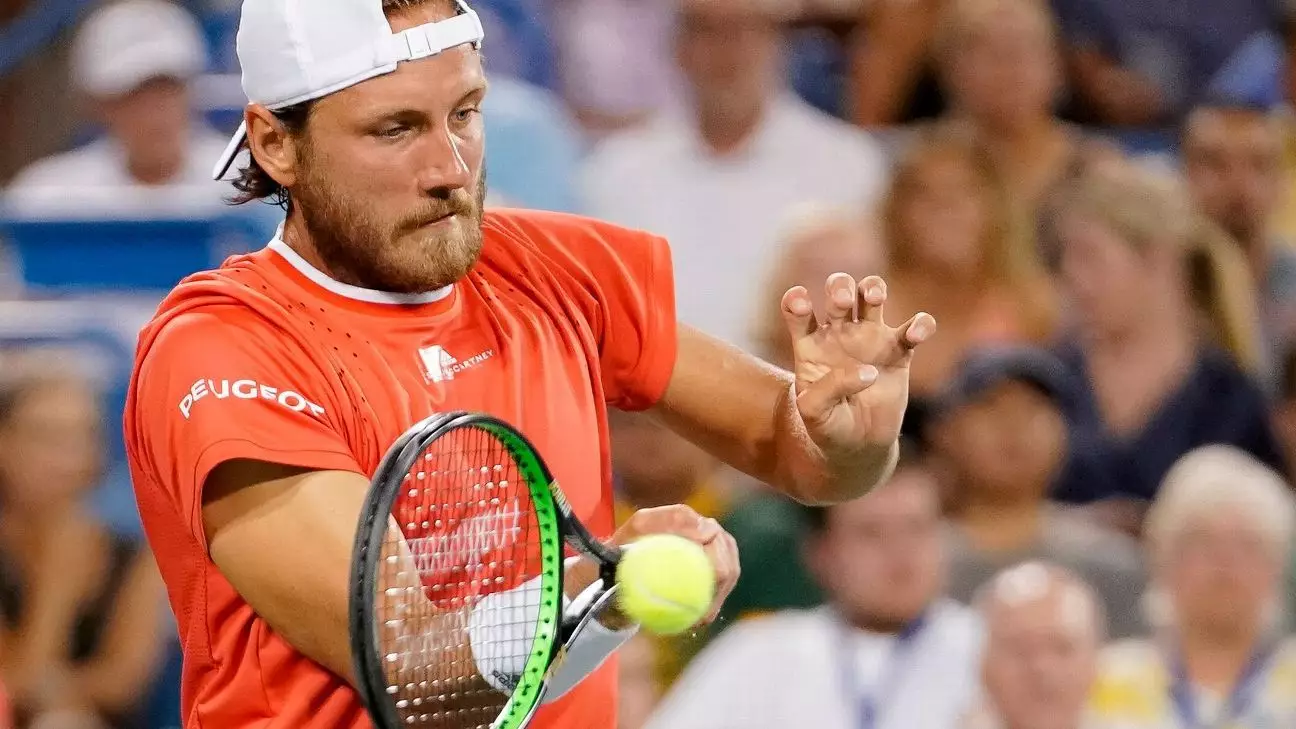Lucas Pouille, a 30-year-old French tennis player, is at a crossroads in his professional career following a significant injury sustained during a Challenger Tour match in Lille. The injury occurred late in his final against Arthur Bouquier, causing Pouille to collapse on the court and subsequently spark concern about the future of his tennis journey. Pouille’s situation serves as a sobering reminder of the physical demands of elite athleticism, where a single moment can irrevocably alter a player’s fate.
The Incident on Court
During the second set of the match, which saw Bouquier leading 6-3, 3-5, Pouille attempted to advance from behind the baseline before suddenly faltering and hitting the ground. Lying on the court, he clutched his right foot, suggesting a severe injury. This dramatic moment raised immediate questions about the extent of the damage and whether Pouille would be able to return to competitive tennis. In the aftermath of the match, he expressed deep concern regarding his condition, estimating the possible diagnosis as a “total rupture of the Achilles tendon.” Such an injury could significantly hinder his ability to compete at the highest levels, casting a shadow over his professional aspirations.
Pouille’s apprehensions are intensified by the knowledge of what he once achieved in the sport. He reached his career-high ranking of 10th in 2018, a year that marked an impressive peak with three finals under his belt. His accomplishments include five career titles and notable performances in major tournaments, including a semifinal appearance at the 2019 Australian Open. Additionally, his contributions to France’s Davis Cup victory in 2017 showcased his abilities on the international stage, where he triumphed over Steve Darcis to secure the win. These highlights point to a promising career that was characterized by consistency and a multifaceted skill set across various surfaces.
As Pouille awaits medical examinations to ascertain the full extent of his injury, the psychological weight of uncertainty looms large. The phrase “there’s a chance it will be the last match of my career” resonates deeply within the sports community, illustrating the emotional toll such injuries can impose on players dedicated to their craft. This moment forces both Pouille and his supporters to grapple with the transitory nature of athletic success. Potential rehabilitation and recovery could lead to a return to the sport, but the looming question remains: will he be able to reclaim the level of performance necessary to compete against the best in the field?
Lucas Pouille’s recent injury raises significant concerns about his future in tennis, highlighting the precarious balance of greatness and fragility faced by professional athletes. As he navigates this challenging chapter, both the tennis world and Pouille himself must reckon with the possibilities of recovery and the realities of career-altering injuries.


Leave a Reply